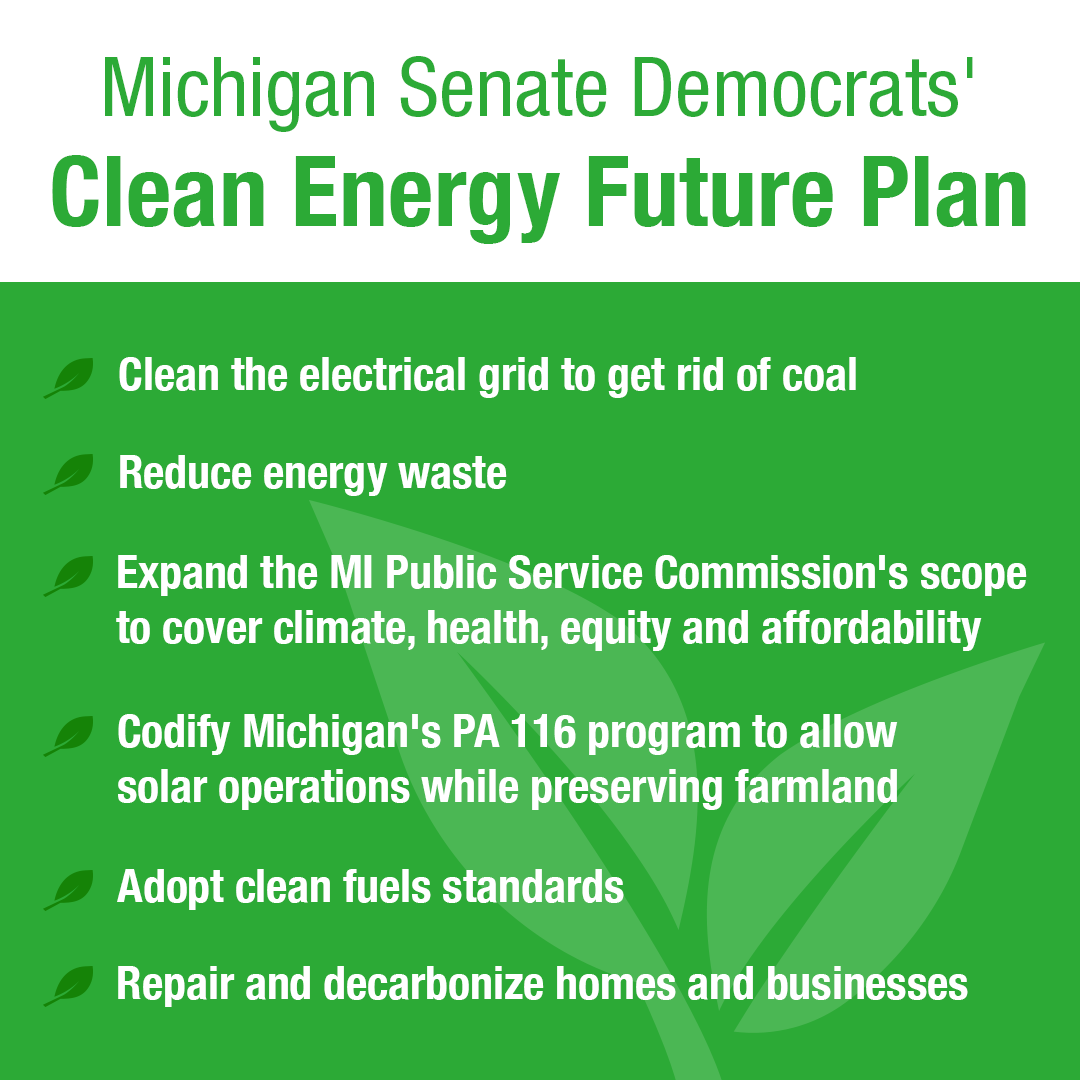Today, alongside my colleagues, I announced the Clean Energy Future Plan, a bill package to help support ongoing efforts to make Michigan a leader in creating an environmentally sustainable future.
“It is past due that we take action to address climate change and invest in the resources needed to make Michigan a leader in environmental resiliency and sustainability. Creating energy efficiency standards and working to reduce carbon emissions and utility costs for residents will make a significant economic impact,” said Sen. Singh. “This bill package signals our commitment to realizing our collective vision for a more sustainable future.”

By addressing key financial and accessibility issues with transitioning to renewable energy sources, the Clean Energy Future Plan allows more homes and businesses across the state to improve their energy usage. This plan includes:
- Cleaning the Electrical Grid: Phase out of coal-fired electricity generating plants by 2030, require utilities to make progress toward the elimination of greenhouse gas emissions from power generation by 2035, and develop a 100% clean energy standard by 2035.
- Energy Waste Reduction (EWR): Achieve at least 2% annual electric energy efficiency savings by increasing the current EWR target for electric utilities, and restore the energy waste reduction target for municipal and cooperative electric utilities.
- Expand the Purview of the Michigan Public Service Commission (MPSC): Allow the MPSC to evaluate climate, health, equity and affordability in the approval of utility Integrated Resource Plans.
- Codify Michigan Department of Agriculture and Rural Development’s PA 116 Program: Allow farmers to rent land for solar operations while maintaining preservation of farmland enrolled in the PA 116 program.
- Clean Fuels Standard (CFS): Adopt to reduce the carbon intensity of transportation fuels by 25% by the end of 2035.
- Repair and Decarbonize Homes and Businesses: Reduce emissions related to heating Michigan homes and businesses by 17% by 2030 by developing a Michigan Construction Decarbonization Strategic Plan.
The Clean Energy Future Plan will include additional bills that are being developed now, including legislation to promote the purchase, use and support of electric vehicles and make energy more affordable for Michiganders. This plan, which was created through collaboration from community stakeholders, sets Michigan in motion to make effective and sustainable progress in combating the climate crisis. With increased severe storms and power outages as a result of ice, wind and rain, a majority of Michiganders support plans to lower emissions and increase accessibility to renewable energy sources for their homes and businesses.
Adopting the Clean Energy Future Plan is just the next step forward in making Michigan a more environmentally sustainable state. Protecting the natural resources of our home and ensuring that Michiganders across the state can access the tools needed to decrease their carbon footprint will continue to be a top priority.

